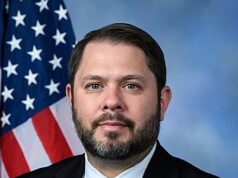District of Columbia Selected to Tackle Vacant and Problem Properties at Leadership Institute
WASHINGTON, D.C. – (RealEstateRama) — Washington is one of nine U.S. cities that have been selected to attend the 2016 Community Progress Leadership Institute, a program that equips practitioners with the leadership and technical skills to address significant blight and vacancy challenges. The Leadership Institute, a program of the national Center for Community Progress, will be held on the campus of Harvard Law School on March 15-18, 2016.
“The Bowser Administration is committed to making Washington, D.C., a great place to live for all District residents. Getting there requires us to address the challenges of vacant and blighted properties in our communities,” says D.C. Deputy Mayor for Planning and Economic Development Brian T. Kenner. “I look forward to working with the Community Progress Leadership Institute to identify solutions that turn these properties into vibrant and productive development opportunities that benefit all District residents.”
Delegations of up to six people from each of the following cities will participate: Richmond, Calif.; Fresno, Calif.; Oakland, Calif.; Erie, Pa.; Harrisburg, Pa.; York, Pa.; Danville, Va.; and Richmond, Va. In addition, California, Pennsylvania, and Virginia will each be represented by two state-level participants, and Washington, D.C. will have an eight-person delegation. Cities were chosen through an invitation-only, competitive application process.
The delegation the District is sending to the Leadership Institute includes members from the Executive Office of the Mayor, D.C. Council, Department of Consumer and Regulatory Affairs, Department of Housing and Community Development, Office of the Attorney General, as well as a community stakeholder. Each of the entities represented play a role in addressing vacant and blighted properties in the District, and will continue working together after the institute to improve the city’s process for addressing such properties.
The cities selected range in population from just over 40,000 to nearly 700,000 and have citywide housing vacancy rates ranging between 8% and 19%. The District was selected for the Leadership Institute because it has demonstrated the leadership and commitment necessary to develop new solutions for vacant, abandoned, and other problem properties.
Sessions will explore the following topics: understanding markets, legal barriers to revitalization, strategic code enforcement, land banking, rental regulation and licensing, access to capital to fund revitalization efforts, community engagement to support innovation reuse, and adaptive leadership.
“The diversity of the cities chosen for this year’s Leadership Institute reflect the fact that communities across the country continue to feel the fallout from the mortgage foreclosure crisis,” said Tamar Shapiro, president and CEO of the Center for Community Progress. “By attending the Leadership Institute, however, these delegations commit to tackling the challenges of vacancy and abandonment head on, to help ensure that the housing recovery reaches every neighborhood.”
This year marks the fifth time a Community Progress Leadership Institute class has convened since 2010. Past graduates of the Leadership Institute have worked with legislators and other stakeholders to draft, advocate for, and pass state and local laws; streamlined systems to acquire and dispose of properties; improved data collection and use; deployed strategic local code enforcement operations; convened statewide leadership summits; and developed new systems that enable cross-agency and multi-stakeholder coordination on blight remediation.
About Center for Community Progress
Founded in 2010, the Center for Community Progress is the only national 501(c)(3) nonprofit organization solely dedicated to building a future in which entrenched, systemic blight no longer exists in American communities. The mission of Community Progress is to ensure that communities have the vision, knowledge and systems to transform blighted, vacant and other problem properties into assets supporting neighborhood vitality. As a national leader on solutions for blight and vacancy, Community Progress serves as the leading resource for local, state and federal policies and best practices that address the full cycle of property revitalization, from blight prevention, through the acquisition and maintenance of problem properties, to their productive reuse. Major support for Community Progress is provided by the Charles Stewart Mott Foundation and the Ford Foundation.
The Washington, D.C. Delegation Members
• Delegation Leader: Polly Donaldson, Director, Department of Housing and Community Development
• Courtney Snowden, Deputy Mayor of Greater Economic Opportunity
• Betsy Cavendish, General Counsel, Executive Office of the Mayor
• Tim White, Interagency Director, Deputy Mayor for Planning and Economic Development
• Melinda Bolling, Director, Department of Consumer and Regulatory Affairs
• William Burk, Chief of Land Acquisition and Bankruptcy, Office of the Attorney General
• Anita Bonds, Chair of Committee on Housing and Community Development, D.C. Council
• Susanne Slater, President and C.E.O., D.C. Habitat for Humanity
###
Contact:
Office: (202) 442-5716 Cell: (202) 657-8489
Chelsea A. Allinger
Office: (877) 542-4842 ext. 153














